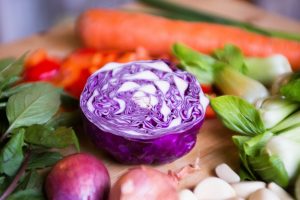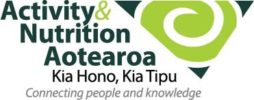02 Mar Children need the right fuel
Children need the right fuel to run and jump and play but also, to think, says Dr Kirsty Fairbairn.
We all want our children to do well in life. We want them to be happy, have self-belief and have a passion to learn about the world.
world.
As the school year starts, households all over the country fall into the scheduling of school, outside-school activities and meals again. The brain strain over school lunches and snacks returns for caregivers. Parents also want those hours our children invest in their education to pay off, giving them access to interesting and productive careers.
Like any other organ in the body, the brain requires specific nutrients from food to function well. Humans as a species have large brains that require a lot of energy; never more so than when young, as children are absorbing so much new information. In fact, the brain demands almost half a child’s entire daily energy requirement!
This is combined with rapid growth; hence childhood is a critical time to be nourishing our children well.
But what exactly are the foods that help our children learn at school?
Last year, Australian researchers (Burrows et al, Appetite, 2017) investigated this very question to find out whether certain dietary behaviours were associated with academic achievement in school-aged children. They explored five dietary aspects (fruit intake, vegetable intake and the consumption of sugar-sweetened beverages, breakfast and takeaway foods) and compared those dietary habits with the NAPLAN tests used in Australian schools (which measure reading, writing, grammar and punctuation, spelling and numeracy) in more than 2000 children aged between 8 and 15 years old.
 They found that eating vegetables at the evening meal more nights a week was associated with significantly higher spelling and writing scores. They also found that consuming breakfast was positively correlated with writing scores.
They found that eating vegetables at the evening meal more nights a week was associated with significantly higher spelling and writing scores. They also found that consuming breakfast was positively correlated with writing scores.
Another major finding, which will resonate in the current food climate, was that higher consumption of sugar-sweetened beverages was associated with significantly lower scores in reading, writing, grammar and punctuation, and numeracy.
Good nutrition impacts brain function in both adults and children.
Our brains prefer glucose as their fuel source. Glucose is provided by carbohydrate foods. Consuming high-fibre and whole sources of carbohydrate is best. Foods such as potato, kumara, taro, green banana, pasta, rice, wholegrain noodles, pumpkin, corn, wholegrain bread, whole fruit and legumes like chickpeas, lentils and beans are more nutrient-loaded sources of carbohydrate than highly processed carbohydrate-containing snack foods such as biscuits, white bread and sugary drinks.
There is also a direct communication link between the gut and the brain, so those higher-fibre carbohydrate sources provide the added benefit of maintaining a healthy gut, another way to improve brain function and immunity (and many other aspects of health that we are still learning about).
Our brains are very responsive to changes in the environment around us, which includes the diet we choose to eat.
We have nutrient-sensing substances in our brain (such as brain-derived neurotropic factor (BDNF) and the hormone leptin) that react to the kinds of foods we eat and whether we are exercising, and then impact our brain metabolism accordingly.
If we supply the right nutrients to our brain and stay active (which does wonders for blood flow), many aspects of brain function thrive. If not, they don’t.
The results of Burrows et al are therefore not surprising. Fruit and vegetables supply valuable vitamins and minerals for growth and development. They are also a rich source of antioxidants and polyphenols.
Polyphenols are believed to protect the neurons in our brain and suppress inflammation, and may improve memory, learning and cognitive function.
Having breakfast before school in the morning also helps kids think, particularly with memory and attention (Adolphus et al, Frontiers in Human Neuroscience, 2013). This could be due partly to the fact that breakfast can contribute many favourable nutrients to a child’s diet, if chosen well.
Good-quality breakfasts (in terms of nutrient content) are associated with better academic achievement. Remember to add fruit to breakfast: fresh, tinned or stewed. Children and adolescents who regularly consume breakfast are also less likely to be overweight.
In contrast, diets high in sugar or saturated fats, or with excessive calories, may impair cognitive function by placing extra stress on the brain. Takeaway foods are often high in saturated fats and calories, as are chips, cakes and biscuits. These should be occasional foods rather than daily. Sugar-sweetened beverages such as fruit drinks, cordials and soft drinks are high in sugar.
 Healthier fats for children include omega-3 fatty acids (found in fish and seafood, nuts and seeds), an important nutrient for building the brain and enhancing brain cell to brain cell communication (Meeusen R, Sports Medicine, 2014).
Healthier fats for children include omega-3 fatty acids (found in fish and seafood, nuts and seeds), an important nutrient for building the brain and enhancing brain cell to brain cell communication (Meeusen R, Sports Medicine, 2014).
Physical activity is also important for brain development and thinking ability. Physical fitness has been associated with academic achievement and thinking abilities, and more physically fit children have a larger hippocampus (an area of the brain important for learning and memory) than less fit children. Thus, a healthy lifestyle has many benefits for kids.
The foods our children choose to eat can either help their brain and body grow well, or place more stress on their brain and body instead.
Unfortunately, our modern food environment makes it easier to consume the high-fat, high-sugar and high-calorie foods that stress our brain. Whether they can deal with that stress well will depend on whether their diet contains healthy foods with plenty of vitamins, minerals, wholegrain carbohydrates, fibre, proteins and unsaturated fats, which provide the ammunition for the body’s own system of clean-up and repair.
As parents, this is our job in the home environment, to ensure that we encourage the consumption of those “boosters”.
Wherever we can, help your children make good choices. They can handle the occasional foods from time to time if their base diet is giving them the nutrients they need.
Encouraging healthy breakfasts and snacks is a good place to start, to water growing kids well. And maybe do the same for yourself: you can all feel good!
Dr Kirsty Fairbairn is a health, wellness and sports dietitian at Invigorate Nutrition (www.invigoratenutrition.com), based at Eclipse Health, Wellness and Performance, Hanover St, Dunedin.
This article was published in the Otago Daily Times on 26 February 2018

